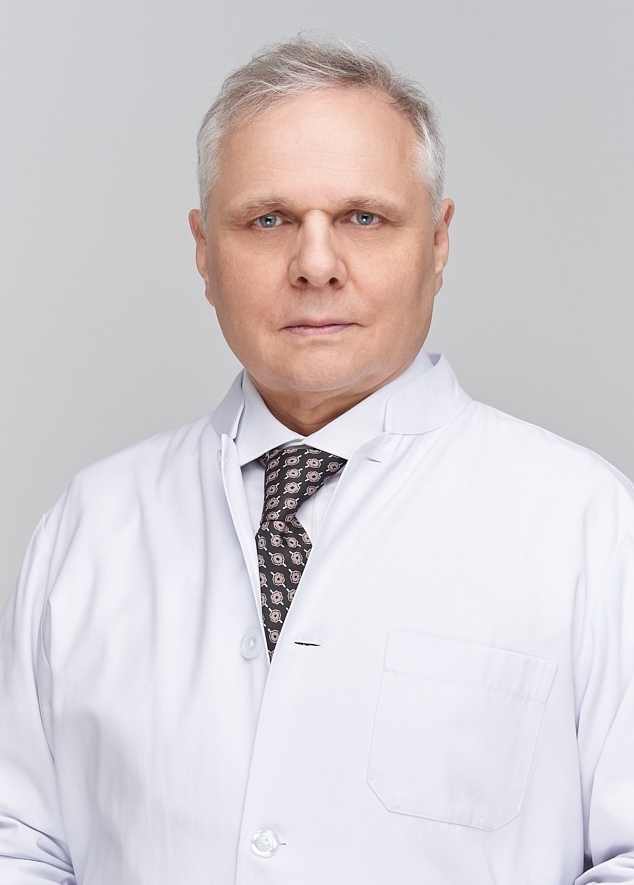
Historically, the term “nervous breakdown” has been in use since around 1900, reaching its peak in popularity during the 1950s. In contrast, the term “burnout syndrome” was first coined in 1974 by American psychotherapist Herbert J. Freudenberger.
Initially, burnout was considered a problem primarily affecting people in social professions. However, according to surveys, up to one-third of the working population today meets the criteria for burnout or “pre-burnout.” This rising prevalence of burnout syndrome highlights that more people are feeling chronically overwhelmed, frustrated, and torn between work and personal stress.
The appeal of the term lies in its emphasis on a physical condition rather than a mental health disorder.
Burnout symptoms typically manifest in three areas: emotional exhaustion, cynicism and detachment (including depersonalization), and reduced performance. However, the symptom patterns are not uniform.
Schedule an Appointment with Our Leading Psychiatrist, Dr. Kowal
Call CHMCBurnout is not, as often incorrectly assumed, a recognized scientific diagnosis in the international classification of mental disorders. While burnout often co-occurs with mental illness, it is not synonymous with one.
How does burnout syndrome develop?
Stressful life situations can heavily burden people, leading them to feel, “I can’t go on; I’m exhausted, empty, and burned out.” Job-related stress can trigger physical and mental symptoms. Possible causes include:
- Prolonged overwork or under-challenging tasks
- Constant time pressure
- Conflicts with colleagues
- Excessive dedication, neglecting personal needs
Work-related stress is a common reason for sick leave. Feeling exhausted from stress is normal, but burnout goes beyond typical stress reactions. Some symptoms resemble other mental health conditions, but there are key differences.
Since the 1970s, the term “burnout” has cropped up. It came into existence as a word to describe the effects of severe stress and high ideals among people in the “helping professions,” such as doctors and social workers, who began to feel exhausted, listless, and unable to cope. Today the word is used for anyone who is feeling like they are no longer able to put up with the physical and emotional demands placed on them by families and employers.
The Diagnostic and Statistical Manual for Mental Health Disorders (DSM-5) put forth by the American Psychiatric Association (APA) and the International Classification of Diseases (ICD-10) published by the World Health Organization define the criteria for the mental health field. Only the ICD has burnout listed as a disorder and defines it as “a state of vital exhaustion.” Experts have not agreed on a formal definition of burnout. They do not consider burnout a mental illness but rather a form of chronic workplace stress. Pressure at work can make people feel exhausted, empty, burned out, and unable to cope. Such stress can cause physical and mental symptoms.
Symptoms of Burnout Syndrome

There are 3 main areas of symptoms, according to the National Center for Biotechnology Information (NCBI) (2017):
- Exhaustion: People affected feel drained and emotionally exhausted, unable to cope, tired and down, and do not have enough energy. Physical symptoms include things like pain and stomach or bowel problems.
- Alienation from (work-related) activities: People who have burnout find their jobs increasingly stressful and frustrating. They may increasingly distance themselves emotionally and start feeling numb about their work.
- Decreased productivity and motivation: difficulty focusing, completing tasks, and feeling driven to achieve goals.
- Reduced performance: Burnout mainly affects everyday tasks at work, at home, or when caring for family members. People with burnout are very negative about their tasks, find it hard to concentrate, are listless, and lack creativity.
- Increased feelings of cynicism and detachment: A sense of disconnection from work, coworkers, and tasks.
- Physical symptoms: headaches, muscle aches, and digestive problems can be symptoms of burnout.
Diagnosing Burnout Syndrome
If you are working in Dubai and are feeling burned out, it is very important to consult with a licensed German psychiatrist in Dubai, psychologist, or counsellor. While online self-assessment tests may offer some insight, they cannot accurately distinguish between burnout syndrome, physical symptoms triggered by medical conditions, or mental health disorders like depression.
German burnout syndrome treatment in Dubai focuses on precise diagnosis and evidence-based care. Though symptoms of depression and burnout may appear similar, each requires a different treatment approach. In cases of burnout, most symptoms are work-related, whereas depression often affects all areas of life, accompanied by persistent negative thinking and low mood.
One of the most effective methods used in cognitive behavioral therapy in Dubai is to help individuals recognize and reframe harmful thought patterns. Cognitive behavioral therapy Dubai has proven particularly useful in addressing both burnout and depressive symptoms, guiding patients toward long-term recovery and resilience.
Treatment of Burnout Syndrome at CHMC in Dubai
Recovery from burnout can take time. It’s important to be patient and kind to yourself. Addressing the root causes of burnout, such as excessive stress and poor work-life balance, and incorporating self-care strategies can help prevent burnout from happening again in the future.
- Psychiatric Treatment with medication for people who cannot function in daily life
- Cognitive Behavioral Therapy (CBT) is an evidence-based treatment approach for people suffering from burnout. In this approach, people can begin to change their thoughts about their work role.
performance, and self/other imposed expectations relating to their jobs.
- Counselling helps people identify areas of their work that are problematic, and solutions are discovered. Here it also is important to learn about leadership styles to address the basic need for
autonomy and respect with managers.
- Through counselling, a person with burnout can also learn how to set boundaries when a workload is too much and reduce “people pleasing” by learning to say “no” politely and firmly.
- We will address work-life-balance. Everyone needs to practice good self-care, which includes time to decompress on a daily basis, vacation time, healthy nutrition, and adequate sleep. In an effort to preserve your well-needed downtime, we will look at your gadget usage to find a healthy
balance.
- If you have sleep problems, a counsellor will provide the basics on sleep hygiene. If your sleep has become so poor that you cannot re-establish it with good sleep habits, the psychiatrist can prescribe medications to facilitate good sleep and regulate sleep cycles.
- During counselling, basic techniques to relax are discussed and taught, such as mindfulness, progressive relaxations, self-hypnosis, and meditation. Exercise is encouraged as a stress relief and
relaxation technique.
- People with burnout will acquire a new set of skills and make changes in their work and private lives. An important part of burnout treatment is to observe the effects of the changes and to reinforce new habits for a permanent, healthy work and lifestyle change.
Causes of Burnout Syndrome
Burnout never has just one cause. The large number of people feeling burned out today shows that this phenomenon reflects current work and social conditions. Workplace stressors often create situations that many struggle to manage over time. Performance pressure, fear of job loss, insults, equating success and high income with self-worth, the need for extreme flexibility, and the loss of social ties and security—these are just a few existential stressors shaped by political and social contexts and individual needs.
Still, some people cope relatively well even in challenging situations, like teachers who reach retirement with enthusiasm, while others feel burned out from the start. Burnout arises from a perceived, ongoing crisis where personal expectations clash with situational realities. At extremes, some burn out without any visible external pressure, while others thrive under high stress and remain healthy. Some job environments motivate even fragile individuals to be creative, while others, marked by conflicts, insecurity, and insults, can push even strong, self-assured people into burnout.
The idea that only highly committed people suffer from burnout hasn’t been proven. Similarly, various models describing burnout as a regular process are not scientifically supported, even if they appear plausible. Research shows that people differ significantly in their patterns and strategies for managing chronic stress at work and in life, with some strategies being more effective than others. Without actively working to expand coping strategies, these patterns remain relatively stable over time.
While some, like Herbert Freudenberger, burn out from their intense dedication to clients or patients, this is not the norm. More often, people who felt overwhelmed early in their careers are more predisposed to feeling burned out years later.
Burnout Syndrome: Risk Factors
How one handles stress and self-care greatly affects the likelihood of burnout. Research shows that certain personality traits increase the risk of burnout, including:
- Perfectionistic attitudes: (“I must do everything perfectly”)
- Low self-efficacy: (“I can’t do it”)
- Strong need for harmony: (“I can’t upset anyone…”)
- External locus of control: (“I’m just a puppet.”)
How do Burnout and Depression Differ?
A common mistake is using “burnout” as a substitute for “depression.” Depression is primarily characterized by low mood, lack of motivation, and loss of interest or pleasure, with diverse causes. Workplace issues can be a factor, but other causes include genetic factors, biological issues, trauma, stress, or conflicts, according to the biopsychosocial model. Feelings of burnout may even arise secondarily as a result of depression. Therefore, it’s crucial to distinguish the causes and effects of feeling overwhelmed individually.
Certain symptoms of burnout also appear in depression, including:
- Severe exhaustion
- Low mood
- Reduced performance
The similarity can lead to mistaking depression for burnout. Someone exhausted from stress may recover with a long vacation or career break. However, this approach might worsen depression. People with depression need different support, like medication and psychotherapy.
Some burnout traits differ significantly from depression. In depression, negative thoughts and feelings affect all life areas, not just specific demands (like work). Typical depression symptoms include:
- Low self-esteem
- Guilt
- Hopelessness
- Suicidal thoughts
These are not typical burnout symptoms. Therefore, not every burnout hides depression. However, burnout can increase the risk of developing depression. It’s essential to take burnout signs seriously and consult professionals for an accurate diagnosis.
Burnout Syndrome: Prevention
Preventing and treating burnout involves optimizing personal stress management strategies.
- If work-related stress is a primary cause of burnout, it may be necessary to have a conversation with your supervisor or HR department to address the issue.
- Stress reduction: this can be done by setting boundaries, delegating tasks, and avoiding overcommitment.
- Improving self-care: Eating a balanced diet, getting enough sleep, and engaging in physical activity can help improve overall health and well-being.
- Mindfulness and relaxation techniques: Practices such as meditation, yoga, or deep breathing can help reduce stress and improve overall well-being.
- Seeking fulfillment outside of work: Engaging in activities that bring joy and fulfillment can help to counteract feelings of burnout and restore a sense of purpose.
- Regular reflection on personal goals and values within one’s job and life context (work-life balance) is essential, supported by appropriate relaxation and recovery measures, sometimes with therapeutic help.
- For social professions, participating in supervision and self-awareness groups is important. Additionally, further training and coaching may be beneficial.
Burnout Syndrome Treatment at CHMC Dubai
At CHMC in Dubai, either the psychiatrist or psychologist/counsellor can establish the correct diagnosis and treatment plans and options. When you need psychiatric care, your psychiatrist will prescribe medication. If your condition is more moderate or mild, a psychologist will work with you using “talk” therapy.
If you feel that you are suffering from burnout, know that it is a treatable condition, and you have expert healthcare services at your disposal at either of our branches in Dubai Healthcare City or Jumeirah Lake Towers.


